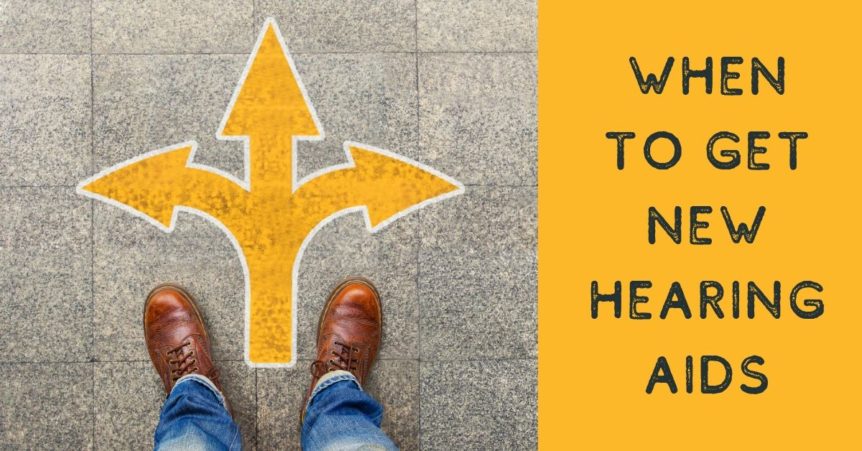Hearing specialists typically recommend replacing hearing aids every five to seven years – which is the average lifespan of a pair of hearing aids. The absolute longest that hearing aids last before becoming expired is seven years but often your needs or lifestyle change well before this. Below we will outline some things to consider when deciding if its time to make a change or upgrade.
Do your current hearing aids still address all of your hearing needs?
Think about the variety of different listening situations that you typically experience, and how well you feel your hearing aids help you in each of these situations. It often helps to rate your listening experiences in each of these instances to report later to your audiologist. As you rate your listening satisfaction in each of these situations, also think about how often they occur and their level of priority to you. If you find multiple and/or important situations where your current hearing aids are performing less than satisfactorily, it is most likely time to upgrade. Some important times to rate are:
- Using the telephone
- Dining out at restaurants with friends and family
- Large gatherings
- Time spent outdoors
- Watching TV
- Listening to music
- Attending lectures or other public speaking events
You’ve had a change in health and/or hearing
For many people, a change in overall health can prompt the purchase of new devices. For example, arthritis might cause you to have less dexterity in your fingers. If you have in-the-canal hearing aids, the small battery door could be difficult to open with limited dexterity, so it might be a good idea to consider new behind-the-ear devices, which have a larger battery door for ease of use. Additionally, as hearing loss can be progressive, you might need more powerful hearing aids or a different type of device to suit your changing hearing needs.
Do you often have to send your hearing aids in for repairs?
Hearing aids consist of sensitive and fragile electronic components that can be damaged by exposure to humidity, earwax, debris, and sweat. Depending on conditions of your environment, individual ear characteristics, and wearing habits, some people will experience more hearing aid malfunctions than others. These problems can get much worse if your hearing aids are not regularly cleaned and maintained. Wax that gets stuck in receivers can be cleaned out, and certain components can be exchanged, but over time hearing aid performance will eventually decline.
Major lifestyle changes
Sometimes, a lifestyle change is an excellent reason to get new hearing aids. For example, if you begin jogging or swimming, you might want hearing aids that can stand up to more rugged environments that your old hearing aids can not handle. Similarly, if you have joined a band or music project you may want hearing aids that are better suited to processing the nuisances of music.
Your financial situation has improved
Maybe when you bought your first pair of hearing aids a few years ago, you needed the most basic and economical option. But if you can now afford more advanced devices, it might be time for an upgrade. The technological upgrades that occurring in hearing aids can be truly live elevating. Some people buy new hearing aids and keep their old ones as an extra set in case their new devices need repair.
Visit us at Neighborhood Hearing Aid Center
As with all things related to your hearing and hearing aids, we at Neighborhood Hearing Aid Center will be your best source of information and advice. When considering the need for new hearing aids, make an appointment with us to have your current hearing aids professionally checked and cleaned. If your hearing has not been evaluated in the past year it is time to see if your current hearing aids are still working for you. We can discus the best hearing aids that will be best for your lifestyle.

